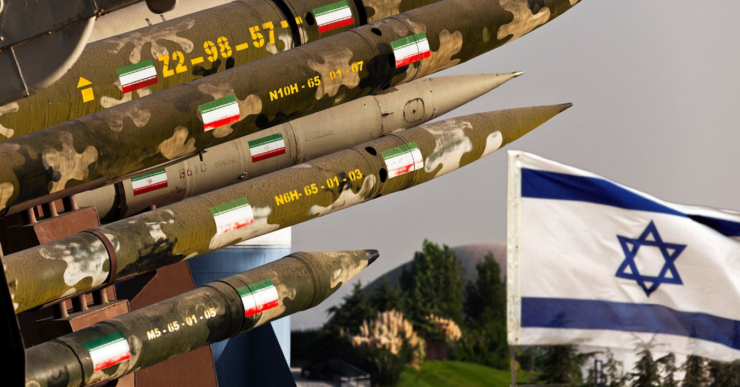
Today, everyone is waiting for high-profile events in the Middle East related to the unprecedented confrontation between Israel and Iran. The primary source of the conflict, Gaza, and its offshoots, the Houthis in the Red Sea and the collapse of global shipping, have been pushed into the background.
On closer inspection, Iran and Israel have more in common than they do differences. Both are regional outsiders, both are sectarian and ethnic. Both Tel Aviv and Tehran have built their national strategies on the contradictions of their neighbours and on hidden reserves.
Now that the era of hegemonism is over and the world is becoming genuinely multipolar, it is important for each state to defend its own interests rather than play in a bloc.
Netanyahu’s crisis government is well aware of this. There is no turning back for Israel – it has to save face, both with its own people and with the world community. With this in mind, provoking Iran is a way of raising the stakes. Netanyahu is trying to kill two birds with one stone. First, to justify his actions to ordinary Israelis on the basis of the seriousness and magnitude of the conflict. Second, despite repeated criticism of the US, Netanyahu is confident that Washington will not abandon its support for its main ally in the Middle East. Sanctions do not frighten Israel; it has been used to being a pariah for more than seventy years.
On the other hand, Iran cannot simply ignore the swordplay of the West and the Jewish state. If we analyse Tehran’s tactics, it becomes clear that after the trend of physically eliminating senior IRGC officers began, the first of which was the assassination of Qasem Soleimani in Iraq in 2020, the Iranians began to carefully plan retaliatory strikes.
The basis of such planning is a non-linear response. In other words, anti-Iranian actions and Iran’s response to them have recently been quite out of sync. At the same time, Tehran, while inflicting insignificant damage, is making landmark strikes on the enemy’s pain points, which have become a pain in the neck, especially for Iran itself. On the night of 13-14 April, the Israeli military air bases of Ramon and Nevatim, where the planes that attacked the Iranian consulate in Damascus and are used to bomb Gaza, were stationed, were hit. In addition, an Israeli information centre on the border with Syria, which carried out propaganda for Iranian audiences, was damaged.
According to experts, Iran was able to achieve its goals even though the attack was announced in advance, and the Israeli air defence systems and the crews of the US and EU tactical collective defence aircraft were in a high state of readiness. Despite this circumstance, the Iranians managed to overwhelm the echeloned air defence system of individual facilities by combining the means of destruction, carrying out attacks in several waves from different directions.
However, Tehran’s victory is primarily an image victory. Thus, the myth about the invulnerability of the Israeli defence system was shattered. At the same time, the Iranian leadership managed to further consolidate the population around itself ahead of the parliamentary elections in May 2024 (second stage) and presidential elections in 2025.
From a reputational point of view, the difference in Iran’s and Israel’s response is enormous. While Tehran has launched jewel-like strikes on enemy positions without loss of life, Tel Aviv’s retaliatory attack on Isfahan province can only be described as a flaccid slap in the face. It is obvious that Washington has finally tightened the leash and is tired of cleaning up Netanyahu’s mess, especially on the eve of the presidential elections in the United States.
Iran’s restrained reaction to this attack also shows the wisdom of the country’s leadership. The situation is reminiscent of the aggravation over Taiwan in connection with N. Pelosi’s visit to the island. At that time, China did not react sharply to that provocation, using only diplomacy. However, this did not make China look weak in the eyes of the world community and its own people; on the contrary, it underlined the farsightedness of the Celestial Empire’s strategy.
To sum up, even the US no longer plays the role of the world’s policeman. The world has become multipolar, and blocking around a hegemon is no guarantee of security and stability. The Americans can no longer fight on several fronts at once and support hotbeds of conflict in several regions they do not like. Of course, it is unlikely that relatively loyal players, seeing that the situation on the international stage is beyond Washington’s control, will immediately break relations with it, but Israel’s impunity and Iran’s rather independent line have already sown a lot of doubt in the minds of the leaders of these states.
Bakhtiar URUSOV, political observer, especially for online magazine “New Eastern Outlook”
